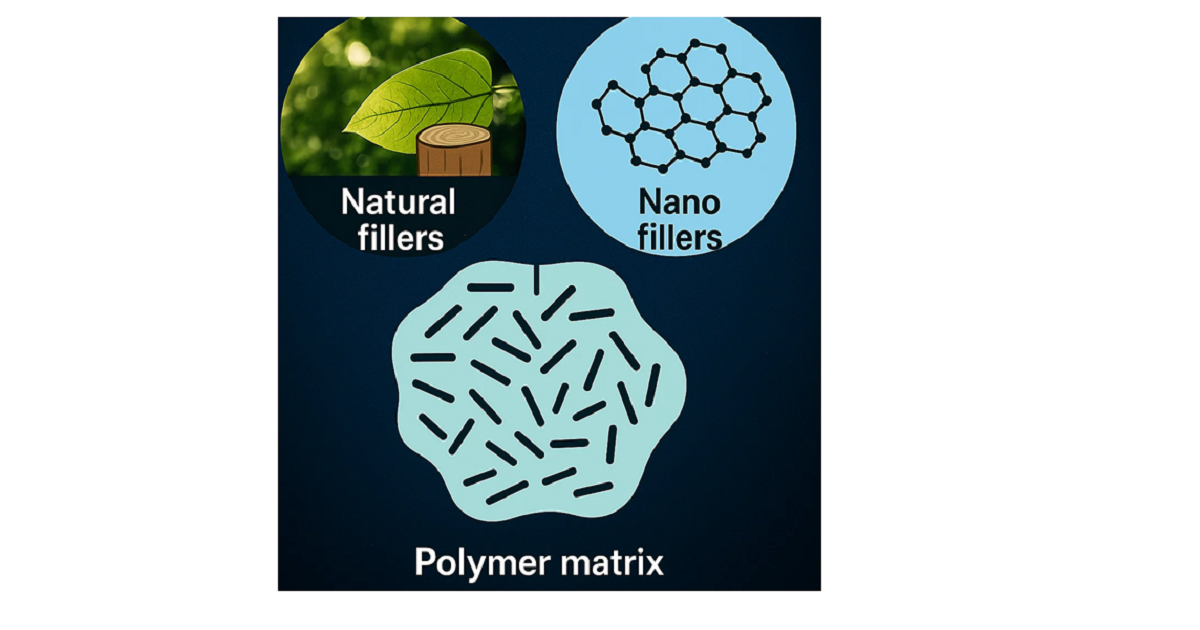- 3.2Impact Factor
- 6.4CiteScore
- 16 daysTime to First Decision
Reinforced Polymer Composites with Natural and Nano Fillers
This special issue belongs to the section “Advanced Composites“.
Special Issue Information
Dear Colleagues,
Polymer composites reinforced with natural and nano fillers have attracted significant attention due to their potential to combine high performance with sustainability. Natural fibers and bio-based fillers offer low density, renewability, and cost-effectiveness, while nanomaterials such as nano-clays, carbon nanotubes, graphene, and metal oxides contribute to enhanced mechanical, thermal, barrier, and functional properties. The synergy between natural and nano fillers opens new avenues for designing advanced composite systems suitable for structural and multifunctional applications across automotive, aerospace, marine, packaging, and biomedical fields.
This Special Issue aims to present the latest developments in the synthesis, processing, characterization, and application of reinforced polymer composites using natural and/or nano fillers. We welcome original research articles, reviews, and communications on topics including, but not limited to, interface engineering, hybrid filler systems, biodegradable composites, surface modification of fillers, and performance optimization. Contributions that explore green processing methods and promote environmental sustainability are particularly encouraged.
We look forward to your valuable contributions to this Special Issue.
Dr. Ge Cao
Dr. He Zhang
Guest Editors
Manuscript Submission Information
Manuscripts should be submitted online at www.mdpi.com by registering and logging in to this website. Once you are registered, click here to go to the submission form. Manuscripts can be submitted until the deadline. All submissions that pass pre-check are peer-reviewed. Accepted papers will be published continuously in the journal (as soon as accepted) and will be listed together on the special issue website. Research articles, review articles as well as short communications are invited. For planned papers, a title and short abstract (about 250 words) can be sent to the Editorial Office for assessment.
Submitted manuscripts should not have been published previously, nor be under consideration for publication elsewhere (except conference proceedings papers). All manuscripts are thoroughly refereed through a single-blind peer-review process. A guide for authors and other relevant information for submission of manuscripts is available on the Instructions for Authors page. Materials is an international peer-reviewed open access semimonthly journal published by MDPI.
Please visit the Instructions for Authors page before submitting a manuscript. The Article Processing Charge (APC) for publication in this open access journal is 2600 CHF (Swiss Francs). Submitted papers should be well formatted and use good English. Authors may use MDPI's English editing service prior to publication or during author revisions.
Keywords
- conductive polymers
- natural fiber composites
- nanofiller reinforcement
- biodegradable composites
- interface engineering
- hybrid filler systems
- surface modification of fillers
- green processing technologies
- sustainable polymer materials
- multifunctional nanocomposites

Benefits of Publishing in a Special Issue
- Ease of navigation: Grouping papers by topic helps scholars navigate broad scope journals more efficiently.
- Greater discoverability: Special Issues support the reach and impact of scientific research. Articles in Special Issues are more discoverable and cited more frequently.
- Expansion of research network: Special Issues facilitate connections among authors, fostering scientific collaborations.
- External promotion: Articles in Special Issues are often promoted through the journal's social media, increasing their visibility.
- e-Book format: Special Issues with more than 10 articles can be published as dedicated e-books, ensuring wide and rapid dissemination.

